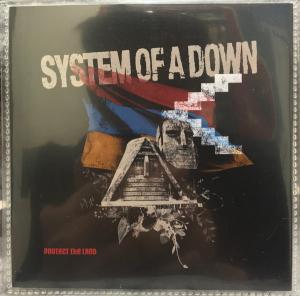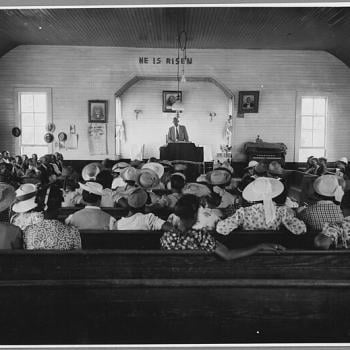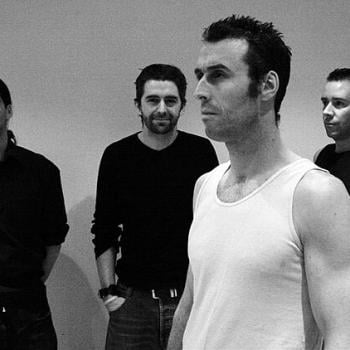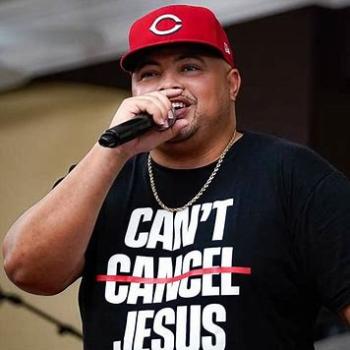The application of a faith-based apologetic dialectic and deconstructive critique of the work Protect the Land by the Armenian band System of a Down sheds a different light and direction toward understanding the intersections of religious and spiritual fundamentals, music, socio-politic intolerance, and activism. Protect the Land, speaks about the second Nagorno-Karabakh War in Artsakh and Armenia that started in September 2020. System of a Down took this moment in history to draw attention to the plight of their country and how potential identity and ethnic cleansing would be an outcome of this war, by framing the historic socio-political and religious unjust binary at its root.
Quoting in a Rolling Stone interview, the band System of a Down (SOAD) states the religious undercurrents of this historic war and how it affects the identity and religious freedom of the Armenian people, “[e]ach of the band members expressed fears that Azerbaijanis, who are predominantly Muslim, view the war against Armenia, a Christian nation, as a holy war and that the conflict could escalate into another genocide…”(2020).
Given the strong tone of the music, it’s easy to dismiss the importance of this track as falling in line with the previous works by SOAD. However, taking note that this work came after a 15-year hiatus, and the specific narrative of this work, there is more to this track than deemed on the surface. This realization, then, allows for a deeper reading into the meaning of the text of the earlier works by SOAD. Leaving that lengthy review aside for the moment, Protect the Land gives voice to socio-political, ethical, and religious events that, at the time, were clouded by other national and global issues – the 2020 U.S. elections and the COVID-19 pandemic. “Make your voice heard and talk about this injustice…” said Serj Tankian (vocalist). Placing an emphasis on the physical war context does not release the historic religious injustice that remains at the core of this atrocity. SOAD does not skirt this matter but rather frames this issue through a direct humanitarian issue appealing to the attention of those who partake of listening to this work as an act of agency, a call to civil arms, and support to this local-global cause.
In a Songfacts interview, SOAD notes the generational implications of this war,
the combined forces of Azerbaijan and Turkey (along with Isis terrorists from Syria) attacked the region. Civilians young and old have been awakened day and night by the frightful sights and sounds of rocket attacks, falling bombs, missiles, drones, and terrorist attacks, they [SOAD]wrote (2020).
To be very clear on the purpose of this work, Song Meanings + Facts notes, “the specific purpose of the tune is to shed light on the plight of the people of Artsakh” (2020). It’s important to recall that this work comes in line with other causes to draw attention to the often-unspoken Armenian genocide. The Armenian genocide was the systematic extermination of 1.5 million Armenians by the Ottoman Empire during World War I. The genocide began in 1915 and continued until 1923, and it is widely recognized as one of the first modern genocides (London 2020). Genocide is defined as, “a crime committed with the intent to destroy a national, ethnic, racial or religious group, in whole or in part…” (UN 2019). Through the lens of this work, SOAD highlights the religious implications and ongoing trauma affecting Armenian Christians.
To apply an apologetic review of the song, Protect the Land, comes with ease as SOAD defines their faith within their country and the necessity for religious freedom. Yes, apologetics is founded upon the argument for the core beliefs and importance of Christianity. Following this rhetorical dialectic, then, SOAD scores this argument with transparency yet directly. Protect the Land requires the listener to investigate the history of the Armenian region, the Muslim-Christian skirmishes, and how religious/ethnic cleansing has been applied to this region as early as the 11th century. The recent burst of military and humanitarian violence in this region – September 2020 – falls directly in line with the complexities of this region. Not only is this a humanitarian war, but it’s also an ongoing religious war, a spiritual identity war, and a personal cause for the right to self-determination.
Bell succinctly notes,
[a]rt [and music] has the power to move people emotionally and intellectually, and it can be used to raise awareness and advocate for change. Art [and music] can provide a platform for marginalized communities to tell their stories and express their experiences, and it can help spark conversations and foster understanding (2023).
Binding this point with a core of faith – the members of the band identify their religious backgrounds as being from Native American spirituality/philosophy, Buddhism, and Christianity – the activism of Protect the Land generates more energy and speaks across a limited genre of music toward a culturally centered ethic. This unspoken tone of this work is the apologetic dialectic sensitive to some, unknown to most, but speaks to everyone who engages in the song.
Bell concludes her point by addressing,
System Of A Down’s song “Protect The Land” is a powerful call to action that speaks to the current conflict between Armenia and Azerbaijan. The song’s politically and culturally charged lyrics…[are a ] message of hope and solidarity…[to remind] us [of] the power of music to inspire change and to promote peace (2023).
I further add and expand this sympathetic approach that the band draws upon their culturally founded faith in penning this work for global attention. Recall that it took a horrific event, a war, to bring SOAD out of an unsettled retirement. It is the inclusive energy – literary and sonically – that brings global audience attention to SOAD and, by extension, to this prolific song. I argue that it is the underlying faith and belief in their country that SOAD strives toward humane resolutions for peace, equity, and self-determination of the Armenian people. This attention may have been, at first, overlooked, yet remains central to the authority of this song.


alanlechusza.com
alanlechuszaauthor.com
Sources
Bell, Jennifer, The Meaning Behind The Song Protect The Land by System of a Down. Old Time Music, August 13, 2023.
Grow, Korny. Hear System of a Down’s First New Music in 15 Years, “Protect the Land” and “Genocidal Humanoidz”. Rolling Stone, November 6, 2020.
London, Amanda. “Protect the Land” by System of a Down, Song Meanings + Facts. November 9, 2020.
Songfacts, November 2020.
System of a Down. Protect the Land, official video, November 5, 2020.
United Nations. The Convention On The Prevention And Punishment Of The Crime Of Genocide (1948). January 2019.













